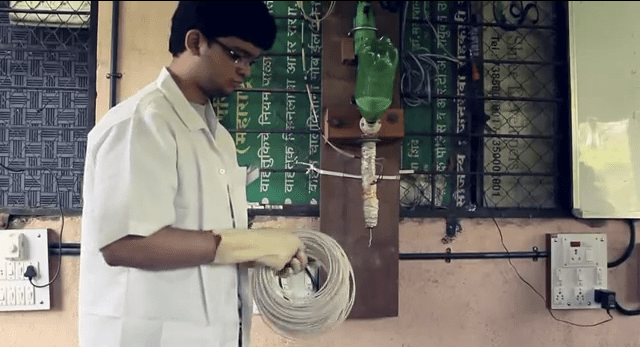As more 3D printers fire up and start chewing through plastic filament to extrude the objects of your dreams, more and more spools of PVC are going to be required to build our DIY future. And that means more plastic waste. Which, let’s face it, we have more than enough of already.
But perhaps there is a better way. U.K. charity techfortrade reckons there’s room to connect up the growing demand for 3D printing, with the surfeit of waste plastic in developing countries. The core aim: less waste and better jobs — that’s better jobs for humans, as well as more ethical 3D print jobs.
The tech-focused charity has today launched an initiative called The Ethical Filament Foundation which will aim to partner with organisations to encourage the manufacture of “ethically produced” 3D printing filament, made from recycled plastic waste — as an alternative to the standard virgin plastic spools.
The ethical element extends not just to feeding recycled waste plastic back in the 3D printer ecosystem, but to providing income stability for waste pickers in developing countries.
The Foundation is working to develop a standard for this ethical filament that can be used to certify producers, who will be able to license and display its accreditation mark. A draft of the Foundation’s guidelines can be be viewed on its website.
The Foundation notes:
This standard will ensure that social, economic and environmental requirements are met in the production of 3D printer filament. It is also hoped that this will contribute towards a general improvement in wider trading relationships with waste pickers by influencing plastic industry standards. The Ethical Filament Foundation mark will act as a quality guarantee for those companies and individual consumers wishing to purchase recycled filament.
The initiative is a welcome one — that could help instigate a wider shift in 3D printer practices. We’ve seen individual upcycling gizmos before, such as the Filabot, but as 3D printing moves from being the pastime of the maker community to something more mainstream it’s going to need more ambitious efforts to keep its dirty underbelly in check.
“After realising a gap in the market for 3D printer filament made from recycled plastic, we immediately recognised the opportunity this presents to the developing world where plastic waste is in abundance,” said William Hoyle, CEO of techfortrade, in a statement. “The 3D printing market is growing exponentially and by making the first move into ethical filament, we hope to raise awareness about the importance of this technology and the benefits it can provide to some of the poorest people in the world. Our first step is to garner support from the 3D printing community.”
The Foundation has been founded by techfortrade in partnership with Dreambox Emergence which provides 3D printing units for community based manufacturing in Guatemala, and Michigan Technological University. Protoprint, which provides waste plastic recycling services in India — detailed in the below video — has signed up as the Foundation’s first licensed organisation.
